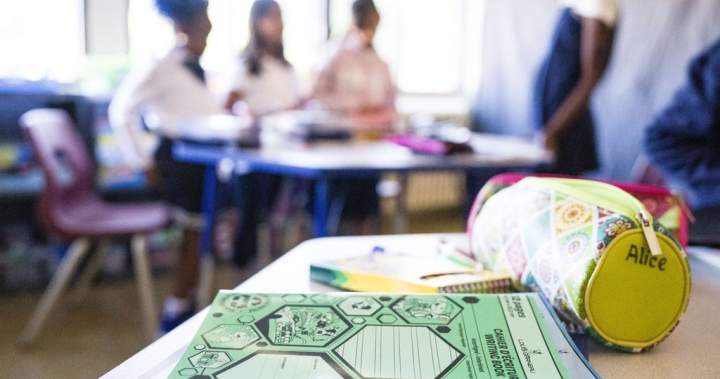As Canada’s children head back to school, a new report says the country’s youth are a “generation at risk” with some of the top threats facing them including bullying, poverty and mental health issues.
The Raising Canada report, commissioned by charity organization Children First Canada this year, found 71 per cent of youth between the ages 12 and 17 reported experiencing at least one form of bullying in the past 12 months.
“Sadly, what we’re seeing year-after-year, life for children is getting immeasurably worse,” said Sara Austin, founder of Children First Canada. “If we don’t act today, we’re going to see long-term repercussions for their development, their well-being and the overall prosperity of our nation.”
According to the report, 42 per cent of youth who experienced bullying reported it happening monthly or more, with 58 per cent reporting it a few times a year.
Of those facing bullying, 25 per cent reported being cyberbullied in the past year.
The report found that of those victim to cyberbullying, 16 per cent said they were threatened or insulted online or by text message, with 13 per cent being purposefully excluded from an online community.
Unlike bullying that takes place at school, children can’t escape the cyber form.
“So it used to be bullying would occur and it was painful, but it happened within the school hours often,” said Alisa Simon with Kids Help Phone.
“Now it’s really hard for young people to escape that. They might be getting messages on social media all night long and for young people that can be incredibly isolating, they could be scared to tell anybody about it.”

Get weekly health news
Receive the latest medical news and health information delivered to you every Sunday.
The Raising Canada report showed cyberbullying risk increased as teens got older, reaching 27 per cent by age 17. However, even at age 12, 20 per cent reported being bullied digitally.
Austin noted youth are also facing more than just cyberbullying but cyber exploitation, pointing to recent reports of police warning youth-focused gaming site Roblox was being used by predators to target children.
“There’s just so many ways in which our kids are being exposed to online harms and harms in their classrooms and basically everywhere that they are that they just aren’t getting the adequate support that they need to be safe and to be supported,” Austin said.
The report found 71 per cent of teachers claim they act to prevent forms of bullying, but only 25 per cent say they actually feel supported by teachers within a school setting.
Mathieu Constantin, executive director of Dare to Care, said when there may be that lack of support, fellow students and teachers need to step up.
“It’s all about stepping up, it’s all about that one person that will have the courage to speak up,” he said. “But then we need to accept those disclosures with grace, we need to support the people that start speaking up, that’s where we’ll see that shift.”
Bullying isn’t the only danger facing youth, the report found.
Many children said they were living in poverty, approximately 1.4 million by the end of 2024, and struggling with mental health issues.
By the age of 25, approximately one in five Canadians will be diagnosed with a mental illness, with a majority beginning to experience symptoms before the age of 18, according to the report.
Children First Canada believes the rise of social media and artificial intelligence is escalating the situation and impacting mental health.
Some action has been taken on the issue of access, with six provinces implementing mobile phone restriction policies within K-12 education settings.
But the report is still calling on the federal government to step up and implement changes focused on youth.
The changes suggested include a “comprehensive” national strategy for children and youth and to invest in this age group as a “nation-building priority,” ensuring future budgets include spending for youth issues.
Constantin said changes are needed, but action needs to actually happen.
“We can have the perfect code of conduct, the perfect contract, the perfect policies, procedures, laws, rules, (you) name it, but if people are not aware of those rules, then it becomes a lot harder to fall back on them,” he said.
It’s why Austin said changes also need to take place at home.
“For kids, if you’re struggling with your mental health or you’re just struggling with bullying or racism or worried about your future, to be able to talk to the parents and other caregivers in your life or talk to your teacher, to reach out for help and to know that you’re not alone,” she said.
“But also for parents, to be digging deeper, to not take the easy answers of ‘I’m fine,’ or ‘everything is OK.’”
—with files from Global News’ Amy Judd and Skye Bryden-Blom and The Canadian Press
Read the full article here


